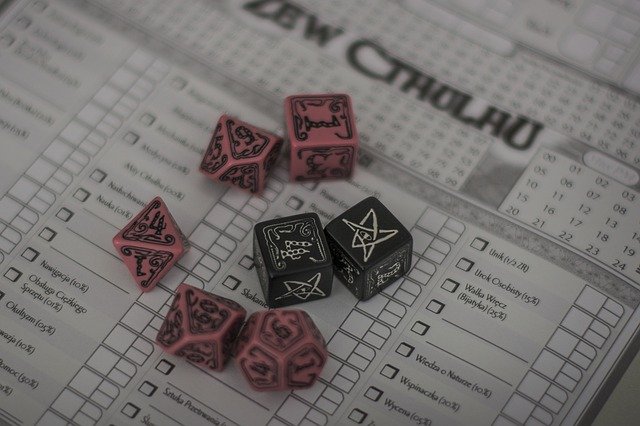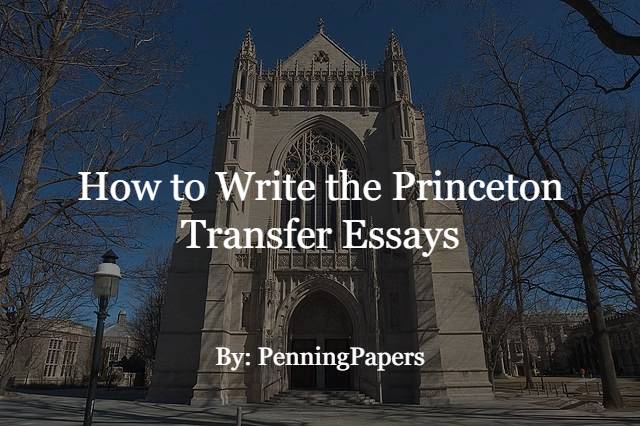Writing the Princeton transfer essays is not going to be as easy as it is for other schools. After all, they only started accepting transfer students around the Fall of 2017. This opened an entire population of aspiring Princeton students looking to be part of the 1% who get accepted. Well, more accurately, the 1.18% of admitted students.
“The 16 admitted transfer students primarily come from community colleges across the country… The University received 1,349 applications for the transfer program this year — close to a 50% increase from last year.”
Princeton University Official Website 2021
Before you start tackling how to write the Princeton transfer essays, we’re going to cover an important element of the application: Mindset. Yeah, okay; we know. We can hear the groans from here. But, listen closely. Having the right mindset is going to be crucial to writing a strong Princeton transfer essay that gets you accepted.
Most of the people we get asking for help on their Princeton application essays almost always ask what the university wants to see. “What does Princeton want to see in the application essays?” “What should I put in the Princeton application essays to get accepted?”
Don’t think like this. You need to accept your unique qualities and be open to writing about them if you want to write a set of strong Princeton transfer essays.
You cannot string your words into any magical manner that would “trick” the admissions officers into accepting you. You also cannot write anything that they are looking for in particular. Of course, they have a mental checklist of character traits like hard work, determination, ethics, etc. But, when the admissions officers are reading your application essays, this is an opportunity for them to learn about YOU.
Once you stop trying to find the formula to a good essay and start simply opening up your character in the essays, you’ll find that your essays will look much better. Now, there’s a balance to everything. Be open, but don’t ignore strategy completely.
Let’s cover some of the said strategies below. And, don’t forget: remember to open up about what makes you uniquely you!
Professional College Application Help.
Contact us. We'll get to you within 24 hours.
Table of Contents
- Princeton Transfer Essay Prompts
- Extracurricular Activity and Work Experience
- Your Voice
- At Princeton, we value diverse perspectives and the ability to have respectful dialogue about difficult issues. Share a time when you had a conversation with a person or a group of people about a difficult topic. What insight did you gain, and how would you incorporate that knowledge into your thinking in the future?
- Princeton has a longstanding commitment to service and civic engagement. Tell us how your story intersects (or will intersect) with these ideals.
- More About You
- Higher Education Experience
- Have you had any interruptions or gaps in your education since high school or college, or have you left any school voluntarily for a significant timeframe? If so, please explain the timeline of your post-secondary career. (Please respond in about 150 words.)
- What are your plans during and after your higher education experience? (Please respond in about 150 words.)
- The Princeton Graded Written Paper
1. Princeton Transfer Essay Prompts
For A.B. Degree Applicants or Those Who are Undecided:

As a research institution that also prides itself on its liberal arts curriculum, Princeton allows students to explore areas across the humanities and the arts, the natural sciences, and the social sciences. What academic areas most pique your curiosity, and how do the programs offered at Princeton suit your particular interests? (Please respond in about 250 words.)
Princeton Official Website
For 250 words, there is not a lot you can say. So, you’ll have to answer the Princeton transfer essay from a Nietzschean front. That is, writing with a hammer and condensing meaning as closely as possible.
We recommend having these three elements covered in your essay: Why is that particular academic area a curious thing to study, what will you do in the future with it, and how is Princeton instrumental to this pursuit?
Princeton University seldom accepts transfers. So, there should be a very good reason why they should accept you. If you want to explore a new field because it’s something you’re interested in, it’s going to be difficult to beat out someone else’s essay talking about how they plan to create a big project off of their interest. There’s a major reason selective schools only choose the students who provide the highest value to the institution.
Therefore, when answering the “… how do the programs offered at Princeton suit your particular interests?” part, remember to emphasize what exactly those particular interests are. Perhaps you have an idea you want to start at Princeton. Maybe you want to create a business in your particular field. Don’t be afraid to think big. After all, the students you’ll be competing against certainly will. The same principle goes for the BSE degree, which we’ll cover below.
For B.S.E Degree Applicants:

Please describe why you are interested in studying engineering at Princeton. Include any of your experiences in, or exposure to engineering, and how you think the programs offered at the University suit your particular interests. (Please respond in about 250 words.)
Princeton Official Website
Unlike the AB degree Princeton essay question, the BSE one has a notable difference. They want to know any of your experiences in or exposure to engineering you had. This requires you to dig back into the past and use those experiences to describe how you developed an interest in studying engineering at Princeton.
For this question, we recommend finding the moment you knew your particular field in engineering was right for you. That means you knew from that moment that this was something you could imagine yourself doing for a long time later in life.
Let’s say for instance you are interested in computer science.
We’ve often come across people who say that their interest in computer science stemmed from a tragic backstory or monumental fairy tale moment. Their grandma died. They met the CEO of Twitter. You know how it goes.
If, however, your interest was born of humble beginnings, say it. Don’t lie. There is no right or wrong way to go about this, and just lying in your application about what catalyzed your interest will not help you. We’ve read many university application essays before, and we can tell when topics don’t come from the heart.
Next, you’ll need to be very specific about the programs at Princeton that would help build on your interests in engineering. Typically, this involves your future aspirations with engineering and how Princeton’s resources could help benefit it.
Let’s use the computer science example again.
If you’re in computer science and wanted to develop a startup that would use the power of artificial intelligence to generate passive income, you may be interested in Princeton’s Entrepreneurial Hub Incubator. Be hyper-specific about how the resources at Princeton would help you achieve your particular dreams and aspirations. Keeping all of this below 250 words could be quite challenging. So, we would recommend having an admissions advisor and editor collaborate with you on how to achieve the maximum impact for the smallest word count.
2. Extracurricular Activity and Work Experience

Briefly elaborate on an activity, organization, work experience, or hobby that has been particularly meaningful to you. (Please respond in about 150 words.)
Princeton Official Website
Your topic in the Princeton extracurricular essay actually does not matter too much. The main focus of this essay should be why the extracurricular activity was meaningful to you. Was the organization that you interned for a gateway into what in-house work would look like in a tech startup? Was the hobby an opportunity for you to connect to the spiritual side that you never discovered, even as someone who prided themselves in rationality and practicality? Did your activities unleash a part of your personality that helped you grow as a person and therefore make you fit better into the Princeton community?
There are many topics you can cover. However, it’s up to you to describe the meaningfulness behind it. The admissions officers will be reading and analyzing this to understand how what you’ve written will make you a great addition to the school.
Here’s another very, very important detail to consider when answering the Princeton extracurricular question. We see this in essays all the time, so don’t do this.
Do not copy what you’ve put in your extracurricular section into the Princeton extracurricular essay. You can have the same topic. However, you need to share information that is not already apparent anywhere else in the application. Remember: this essay shows more about you, not the achievement itself.”
Okay, let’s take a look at an example.
If you’re interested in Chess, you don’t want to just repeat all the accomplishments you’ve made in chess. Those are already going to be in your application and awards section. Saying that this hobby is meaningful because you’re won “x” awards would only highlight your competitiveness —which, let’s be real, a school like Princeton will already know about. Instead, you could talk about how chess was an outlet for you to make intelligent problem-solving fun. For instance, take grandmaster Hikari in the video we’ve put below.
Historically, chess has had quite the air of arrogant intellect surrounding it. It’s even made the game quite inaccessible to some who find that pomposity unattractive. In this video, grandmaster Hikari turns the tables on Chess’s seriousness and plays a ridiculous move he titled the “bong cloud” opening. It is a move that is purposefully terrible for the sake of comedic effect. If you’re someone who likes to enjoy and have fun with the mental problem-solving process, you would be an interesting person compared to the rest of the application pool.
In fact, think about what writing about this would insinuate. By writing about Chess and how using moves like the bong cloud opening helped make a meaningful impact on your perspective on problem-solving, admissions officers can infer that you’re someone who is capable of having a healthy relationship with challenges and obstacles. You have a good attitude with work, and not an unhealthy one rife with doubt, anxiety, and toxic hustle culture. Thus, you’d be a great addition to the Princeton community and perhaps even a force to depathologize the work culture there.
3. Your Voice

Please respond to each question in an essay of about 250 words.
Princeton Official Website
There are two different questions here. We’ve pasted them below and deconstructed how to tackle each one. There is no advantage or disadvantage to choosing either question. Simply answer the one you believe you’d have the strongest answer for.
At Princeton, we value diverse perspectives and the ability to have respectful dialogue about difficult issues. Share a time when you had a conversation with a person or a group of people about a difficult topic. What insight did you gain, and how would you incorporate that knowledge into your thinking in the future?

So, there are a few important details to consider when answering this question. We recommend keeping these major points in mind.
- Were you having respectful dialogue?
- Why was the topic you discussed difficult?
- What did you gain? Was it really a gain?
- If you translate what you gained to the future, does it benefit Princeton in any way?
These are major ideas in the prompt that the admissions officers will keep in mind when Princeton reads your essays. You should have a sufficient answer covering all of these without any holes. Let’s explore each point.
Respectful dialogue means one where you are listening. This is actually something a lot of people don’t know how to do, and many are surprised just how rare true listening really is. It’s a skill, like any other manifestation of emotional intelligence. Demonstrate to the admissions officers that you truly are listening. Show that you’re trying to understand their perspective even if it’s difficult. Show that you’re wrestling with difficult concepts and abstractions WITH your partner instead of arguing. This demonstrates the kind of emotional maturity that is necessary for productive communication to flourish at Princeton.
Next, consider why the topic you discussed was difficult. For some, difficult concepts mean treading waters that can risk being offensive to others yet need to be discussed. For others, this can mean exploring ideas that truly push one to the limits of their intellectual capabilities. Here are some examples. Explaining the idea of modern Economics to traditional, conservative thinking family members can be quite difficult because one risks denigrating the sanctity of parental authority. Telling family members that “there is no labor shortage, just a shortage of good employers” risks offending a demographic of older people who hold opposing opinions. Writing about your discussion with strictly religious family members about the connections between Judaism and Christianity could be difficult because it demands theological, psychological, and learned knowledge that pushes your limits of articulation and perception. Writing about this could be advantageous because it shows Princeton that you are not afraid of being wrong when pushing your intellectual capabilities for the pursuit of truth.
In terms of gain, this can be quite difficult. More often than not, most people only gain the moral superiority and domination of being “right” in a discussion. You don’t want to write this in your essay. Princeton doesn’t need conquerors; they need explorers. Thus, write about what you’ve gained metaphysically. Talk about the emotional bonding you’ve developed as a result of this difficult conversation or the new perspective you’ve gained as a result of listening to another side. You can write about any kind of gain so long as it demonstrates a part of your that is positive for the school.
The last element is rather obvious; yet, it’s critical. Make sure to tie the essay together by talking about how what you’ve gained from this discussion would benefit your future at Princeton. Maybe your new perspective has made you more open to differing opinions, and therefore you can conduct more sophisticated dialogue with intelligent people. Perhaps you developed the humility needed to accept that, at times, being wrong about something is not as bad as you thought; therefore, you can accept being wrong at Princeton with a positive outlook and learn from what the community has to offer.
Princeton has a longstanding commitment to service and civic engagement. Tell us how your story intersects (or will intersect) with these ideals.

One word: cliche.
Okay, well, not just one word. It should be three words: don’t be cliche. You get the point.
The reason we start with this advice for this particular question is that many applicants to Princeton will have similar volunteer experiences. We’ve looked at many different Ivy League essays, and many of them have very similar volunteer experiences. For the most part, this is inescapable. After all, not everyone can have a unique volunteer experience that just so happens to stray from the norm unless they’re very, very fortunate.
So, what do we do?
The key here is to write about the unique parts of your experience. Everyone’s volunteer experience is unique and meaningful in their own way; so, write how that was the case for you. How does your unique perspective on your experience parallel Princeton’s values and principles on service?
4. More About You
Please respond to each question in 50 words or fewer. There are no right or wrong answers. Be yourself!
Princeton Official Website
We’ve listed all the short answer questions you need to answer below. Each one will be 50 words; so, you’ll need to be precise in your language. Here’s a tip, write each one without thinking about the word count. Just go about it being as honest as you can. Then, take the most important parts of what you’ve written and condense them to their most critical points.
If you are still stuck with a high word count, try making copies of your existing essay and reducing parts you can remove. Then, read them side by side. You’d be surprised with how much you can reduce! There’s more dead wood laying around than you think!
What is a new skill you would like to learn in college?

The word “skills” in this question can mean everything from sports techniques to more abstract skills like critical thinking. The prompt is purposely vague because it allows applicants to open up about the things they truly want to learn, but it is also an opportunity for applicants to demonstrate humility in the wake of the admissions process.
This is the chance to show you are open to learning, and that you’re open to learning in the Princeton community.
Whichever choice you make, you should choose an answer that would make you into a greater person. Your answer should be something that the admissions officers can analyze and see parts of your personality that may not originally be obvious.
Here’s an example. It is becoming more normalized for Dungeon Masters to make their DM skills an actual career. There is a high demand for skilled Dungeon Masters, and this can be quite difficult for people because it requires people to have strong communication skills. Thus, one way you can answer this question is to say that you want the kind of strong communication skills that would make you a master of dialogue between many groups of diverse people.
What brings you joy?

You don’t have to get philosophical or anything unless you want to.
This question can be answered quite easily, but you should consider what the topic you’re writing about shows about you. Let’s say you want to write about how video games bring you joy. It would be critical to consider why video games actually bring you joy and what kind of character traits the admissions officers can infer from your writing.
If you derive joy from playing with others in competitive E-Sports environments, it is clear that you have a collaborative and competitive temperament. If you enjoy playing casual games with friends and cracking jokes during games to unwind after a long day, one may assume you enjoy light-hearted company with others and the humor that comes with it. It also shows you can get along well with people even if they don’t enjoy intense, competitive environments.
Consider how these character traits would look in relation to the rest of your application. Someone who enjoys the collaborative, competitive E-Sports environment of gaming would be a great fit for a fast-paced startup environment that requires creative thinking and quick-witted innovation. What are your dreams and aspirations? Do they correlate with the kinds of things that bring you joy? If so, make that connection!
What song represents the soundtrack of your life at this moment?
Don’t overthink this one.
The nature of this question is deceiving because people think there is a right or wrong answer to this one. There really isn’t. The nature of music is that it can fit with practically anyone. Though, you may want to have a song that actually aligns with the content of your essays. So, if your essays cover themes of overcoming obstacles and difficulties, any song that inspires grit and determination is fine.
Meanwhile, having a party song clash with the main focus of your other essays may make things confusing.
However, there are unique ways of approaching this. After all, some songs fit perfectly with certain activities.
To answer the Princeton song essay question creatively, you can think about the precise life events that took place in the past few months. What were the most significant events of the past months? Did you write about it in your application? Is there a song that fits with exactly what happened at that moment? If so, you can reference it and its themes and connect it with the song or soundtrack you want.
Let’s say you wrote the extracurricular activity essay on your experience volunteering as a soccer coach for your local middle school. You talked about how the kids in the middle school would try their best to win and push their bodies to the limit. There’s one student in particular who you’ve been pushing to get to break from his comfort zone. When defeat seems to be near, you yell for him to take a shot and he does. He lands a miraculous shot and turns the game from a loss to a tie.
What song goes well with training someone to transcend obstacles and adversities? Well, a good example would be this one.
Okay, fine. The meme associated behind it may be too informal for students to be comfortable with putting it in a Princeton application.
Though, you get the gist of it:
- Find what the most significant experience was in the past few months.
- Locate a theme from that event.
- Find a song that best summarizes that theme just from listening to it.
Let’s look at one more example.
You spent the last 2 months working to get a fitter body. You’ve worked to get more muscle mass and, after having already done so, you’re looking to shred the fat. So, your extracurricular activity involved running like a racehorse and eating like a rabbit.
If you wrote about this in your extracurricular activity essay, think of what theme this has. There are a lot of themes to pull from this. Vegetarianism. Running. Grinding. Hard Work. Patience. Etc. So, here’s a good song to go along with that.
One of the things we’ve been asked a lot is whether rap, rock, and hip hop are allowed.
You should remember that your admissions officers are human. If you had songs from anime, tv shows, rap music, Korean dramas, etc, you’re okay. Typically your admissions officers will understand that you’re a normal person, and normal people don’ criticize music tastes too much. Though, do you know what would make them criticize?
If you seem fake.
This is perhaps the last bit of advice we would give on this essay question. Do not be fake with this question. The point of the Princeton transfer essay is to open up about yourself so the admissions officers know you’re a genuine person. Don’t let your greed for an acceptance letter blind you to the point of the essay as a whole. Tell the truth. Be honest. Use a song that speaks to your heart.
5. Higher Education Experience
Have you had any interruptions or gaps in your education since high school or college, or have you left any school voluntarily for a significant timeframe? If so, please explain the timeline of your post-secondary career. (Please respond in about 150 words.)

This question always seems to give people headaches.
The admissions officers ask this question because they want to know whether you’ve been doing things productively with your time off. They also want to screen you for any inconsistencies or insufficiencies in your history. Don’t fret, though. Remember to be truthful and keep the way you appear to the admissions officers in mind.
Whatsoever your reasons for having interruptions in the gap of your education, the topic is usually less important than the explanation behind it. If you’ve had a medical issue that prevented you from continuing on with your educational career, you can write about that and how the physical handicap hindered your progress. If you spent the time traveling abroad, you can mention that as well.
Be honest, but remember what your experience can say about you.
If your health was in danger, you may be unable to clarify as much. Though, it may also show that you have the emotional patience and maturity to understand that pursuing an education whilst you’re sick is not the most responsible thing to do.
If you write about traveling, consider writing about why you’ve needed to do so and why it was so important that it was worth taking a gap year for. Maybe you spent so long in school that you needed the time to take a spiritual journey and “find yourself” before you were truly ready for the challenges to come during college. Or, perhaps you needed the time to take a break and truly recover from the workload before you can be fully energized for the next big project you’ll undertake at Princeton. Both are entirely valid reasons and show that you have a rational plan.
What are your plans during and after your higher education experience? (Please respond in about 150 words.)

Have we mentioned the importance of honesty in these essays already? We have? Well, we’re going to say it again for this essay question too.
Be honest.
The admissions officers know that practically every student is going to have at least an uncertain path ahead of them after their academic years. Even the people who know they’ll be starting a nonprofit or tech startup realize further into their career that they have no idea what they’re doing and what direction their projects will take.
Take Elon Musk. The man had a plan, especially when he worked to develop Paypal. Yet, even after having created so complex software and cashing out of it at the end, could he have guessed he’d be making flamethrowers or sending rockets to space? Well, probably not.
If you answer this question from a position of humility, you’d be answering this question wisely. It will show both the emotional maturity to admit that anyone in their early 20s can’t possibly know everything about the future. However, if you admit that you’ve thought immensely and have a sophisticated idea of what you’ll at least be striving for, then you’ll have an even greater answer.
Thus, the best way to answer this question is both from a position of humility and a position of informed hope. You admit that you don’t know as much as you think you do about the future; yet, you demonstrate that you have an actionable plan to execute that will bring you closer to what you want to do.
Here’s an example.
You are interested in the world of Science and Technology, particularly in what the world of AI and Robotics has to offer. Yet, your interests are wide and far because you’re still young. You need to hone your experience to truly narrow it down into one field. So, you plan to create a startup in robotics and in artificial intelligence that would also serve to explore the manifestations of your labour in these passions. You give yourself actionable steps such as a monthly to-do list for your online marketing campaign for the startup as well as a set of requirements to fulfill in recruiting other people for your team.
This would answer the Princeton future plans question perfectly since it shows a sense of humble wisdom and reasonable action all in one package. These personality traits would help admissions officers realize you have the right mindset and temperament to succeed in the future, especially at Princeton.
6. The Princeton Graded Written Paper

Princeton also requires you to submit a graded written paper you’ve done in school. This is preferably from an English class. There is a lot to unpack with the graded written paper, so we’re going to paste our guide on how to write it here.
However, to make it short, this is generally what you want to do with the Princeton graded written paper.
- Ask your teacher if they could grade your paper first.
- Find a meaningful topic to write about.
- Show Princeton that you can articulate your ideas properly.
- Get your essay edited or revised before submitting it to your teacher.
- Send your results once you’re satisfied.
It’s important to note that Princeton is measuring both your ability to formulate complex ideas as well as your ability to articulate said ideas in words. So, the key to writing a good Princeton graded written paper is to ask your teacher if you could write an essay for them to grade on a topic of your choosing. That way, you’re playing a home game. You’ll be writing a topic you’re knowledgeable about.
If you are still struggling to write your Princeton transfer essays, don’t be afraid to ask us for help. You can schedule a free consultation with us, and we will get back to you with a free phone consultation. This consultation includes brainstorming, planning, and advising on your Princeton transfer essays.


All seems solid to me. If I get in, I’ll leave another comment.
Hi Seth! Thank you, and great! Good luck on the application and fingers crossed you get accepted!